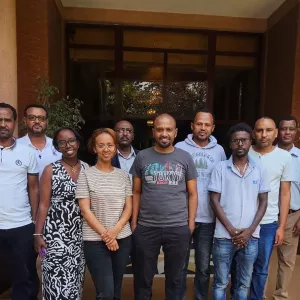Summer 2024 Seasonal Forecast and Pastoral Climate Advisory for Ethiopia
“Pasture and water availability are expected to decrease in most parts of the Pastoral areas of Ethiopia.” The June-August 2024 seasonal forecast and pastoral climate advisory (PCA) has been released by the Ethiopian Institute of Agricultural Research (EIAR) in collaboration with the Alliance of Bioversity International and CIAT, the Oromia Agricultural Research Institute (OARI), and Addis Ababa University (AAU). This

Summer 2024 Seasonal Forecast and Pastoral Climate Advisory for Ethiopia
“Pasture and water availability are expected to decrease in most parts of the Pastoral areas of Ethiopia.”
The June-August 2024 seasonal forecast and pastoral climate advisory (PCA) has been released by the Ethiopian Institute of Agricultural Research (EIAR) in collaboration with the Alliance of Bioversity International and CIAT, the Oromia Agricultural Research Institute (OARI), and Addis Ababa University (AAU). This advisory is designed to assist pastoral communities in managing climate and weather risks by integrating near real-time data to anticipate resource scarcity and provide guidance on livestock movement.
The 3rd PCA advisory was co-developed by a team comprising members from EIAR, the Alliance of Bioversity International and CIAT, Ethiopian Meteorology Institute, the Yabello Pastoral and Dryland Research Center, and AAU. The PCA indicates that pasture and water availability is expected to decrease for most parts of the pastoral areas of Ethiopia due to the dry and cool reduced rainfall weather conditions and evaporation. In some pastoral areas, moderate to severe heat stress is anticipated in the coming summer season (Figure 1).

